Kakushigoto – 02
One indelible truth about gag manga and their adaptations is that they’re only as funny as the gags. It sounds obvious but in reality it means those sort of series don’t have much margin for error. And a gag manga is basically what Kakushigoto is, as it turns out. A collection of half-funny situation comedy set pieces resting upon a rather dumb central premise. It has its moments and I’m not ready to fully cut the cord yet, but at this point it isn’t really working for me.
If you’re interested in mangaka in-jokes, this setup does have a lot of appeal. “Kamakura Syndrome” may very well be a real thing for all I know, though I’ve never heard of it. The problem is that while that’s a funny idea in concept, the execution built around it is… flat? Predictable? It strikes me that way anyway. If the comedy doesn’t consistently make you laugh that’s a problem, as there’s not much structure backing it up.
I assume we’re building towards a tearkerker Kumeta-clusion where Goto-sensei is actually dead in the present, or else a fake-out where we’re supposed to think that and he’s actually taking a dump or something. But at this point I don’t have any emotional investment in the “serious” side of the story. Unless that changes or the gags get a lot funnier, this one is going to be a miss for me.
Listeners – 02
I really want to like Listeners, because it harkens back to the time when I really became a serious anime fan with considerable authenticity. The problem is that so far, the execution just isn’t especially impressive. On the surface level, that this is reminiscent of Satou Dai’s most famous series Eureka Seven is hard to refute. But that just makes it harder to ignore the ways in which it fails to measure up to that iconic if very flawed classic. This ain’t Bones, and while MAPPA can be a very capable studio all those beautiful hand-drawn Bones mecha animations are CGI here. And while Andou Hiroaki is a capable director, he’s no Kyouda Tomoki. His instincts run to CG, and that really shows.
One expects a Satou story to be somewhat scattershot and hard to pin down at first, so I guess that Listeners is that can’t really be held against it. There are some interesting elements here, like a trio of Dadaist players who go around name dropping Weill in a sort of performance art singsong. And I rather liked the wrecked amusement park – shrouded in illusion in a manner which still hasn’t been explained – where Echo and μ eventually spend the night after an attack by Earless causes a forced disembarkation from the train they’d hopped out of town. As for the Earless themselves, the Dada girls explanation that they’re humans who failed at becoming players can probably be taken at face value absent any reason to think they’d lie about it to Echo.
It’s not really adding up to anything compelling for me though, at least not yet. Neither Echo or μ are especially distinctive or interesting characters at this point in the story, and it’s not a matter of Echo being something of a sad sack – Renton was too, but he was a much more fleshed-out kid and easier to empathize with. Maybe the arrival of Jimi Stonefree (who was obviously the unregistered played Echo saw as a child) will spice things up a bit.


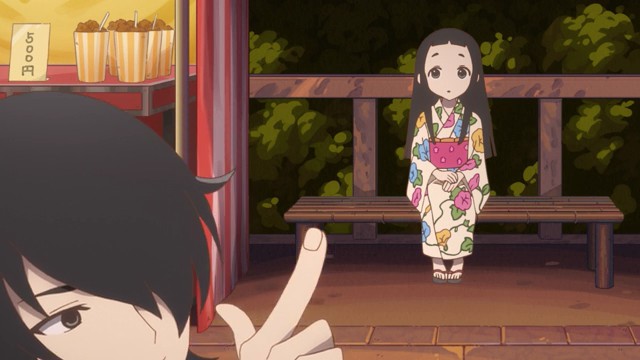


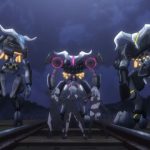

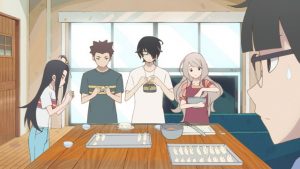
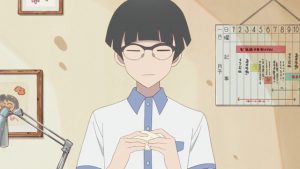
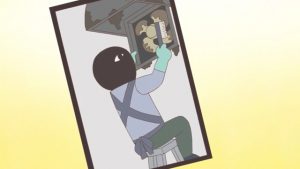
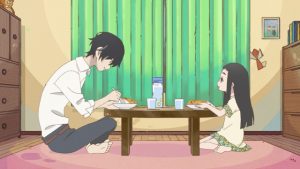

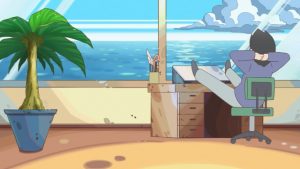
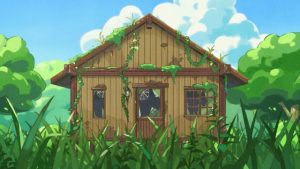
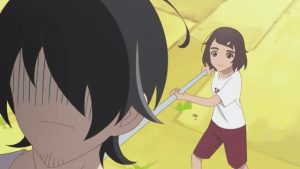



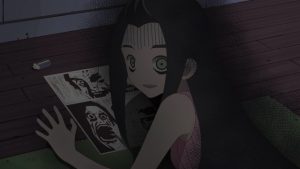

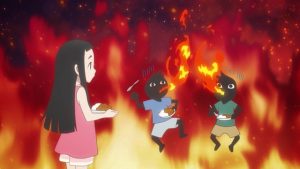

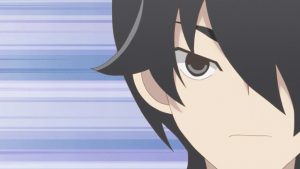
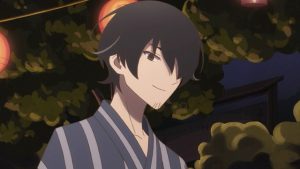
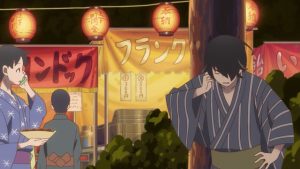
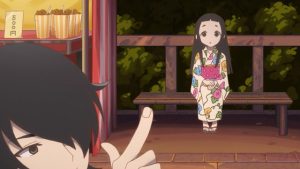
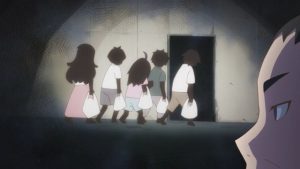
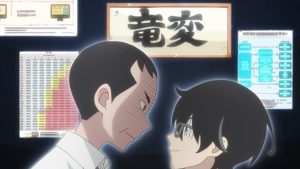
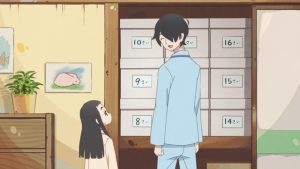



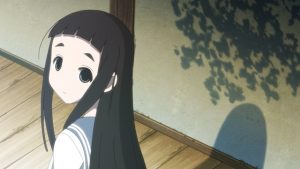
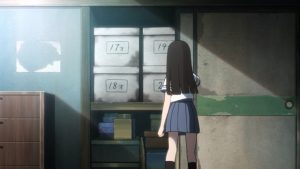
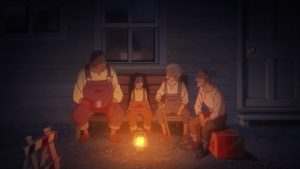
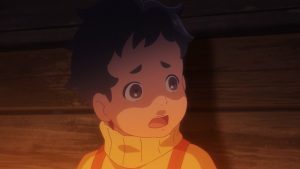






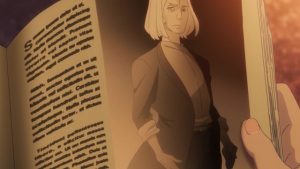

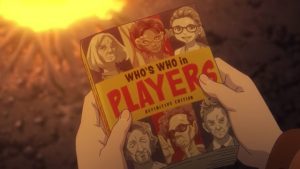
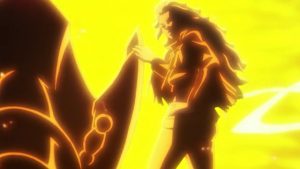

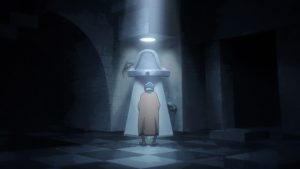
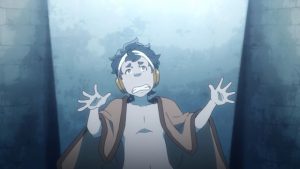
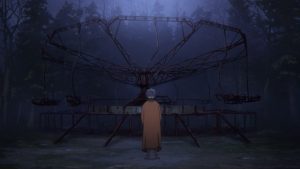
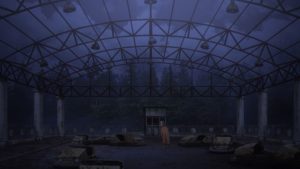
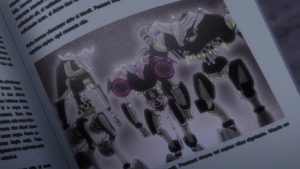

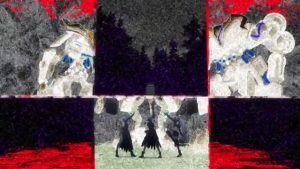
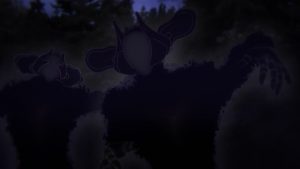
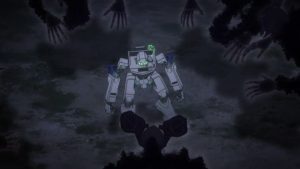

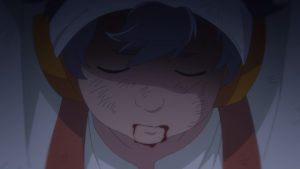


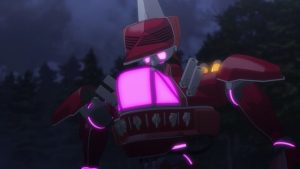
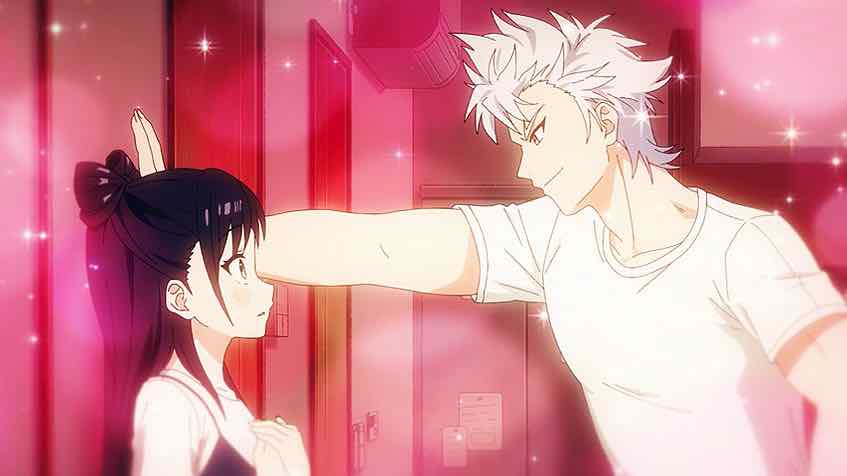
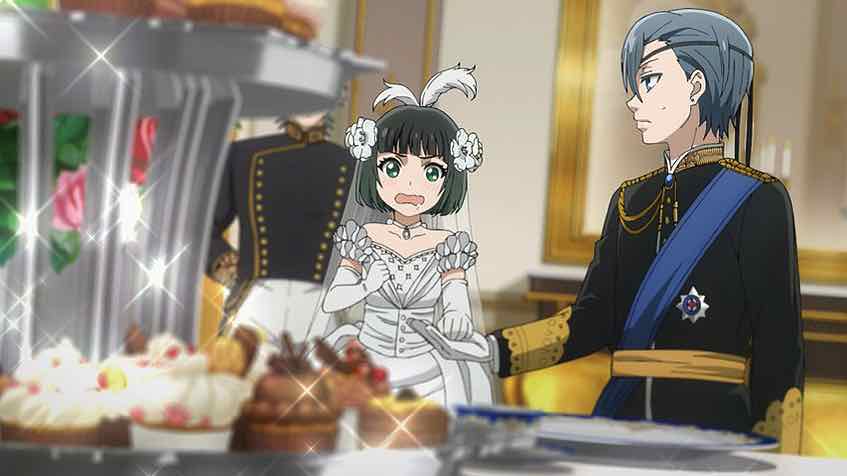
Dop
April 11, 2020 at 6:14 pmI’ve no idea where Listeners is going with this, but the sisterhood of Dada being named Ein, Stür, & Zende Neubauten amused me mightily.
Guardian Enzo
April 11, 2020 at 6:21 pmWhat does “Zende” refer to? I don’t know any such real person or German word off the top of my head.
Einstürzende Neubauten
April 11, 2020 at 8:15 pm“Einstürzende Neubauten (German pronunciation: [ˈaɪnˌʃtʏɐtsəndə ˈnɔʏˌbaʊtən], “Collapsing New Buildings”) is a German experimental music group, originally formed in West Berlin in 1980.”
“One of their trademarks is the use of custom-built instruments, predominantly made out of scrap metal and building tools, and noises, in addition to standard musical instruments. Their early albums were unremittingly harsh, with Bargeld’s vocals shouted and screamed above a din of banging and scraping metal percussion. Subsequent recordings found the group’s sound growing somewhat more conventional, yet still containing many unorthodox elements. ”
(Quotes from Wikipedia)
Guardian Enzo
April 11, 2020 at 8:18 pmYeah, that name I’ve heard. “Zende” is what I haven’t figured out.
Einstürzende Neubauten
April 11, 2020 at 11:36 pmOK then: if you’ split “collapsing” into Col, Lap, and Sing, Col means exactly what Zende does.
Guardian Enzo
April 12, 2020 at 9:43 amPerfect, thank you.
Kim
April 12, 2020 at 3:11 amI agree with you on Kakushigoto. I want to like it more because it has perhaps my favorite style this season & the opening & ending are lovely but I am just not that big on gag series.
Guardian Enzo
April 12, 2020 at 6:00 pmThere are exceptions to be sure. I think Minami-ke could be considered a gag series, for example, and I adore it. But my point stands – the margin for error is very low with gag comedy. There are things I like about Kakushigoto but so far I just don’t find it that funny that often, and the central conceit annoys me.
Proto
September 5, 2020 at 2:45 pmI just started watching Kakushigoto myself. And like you say, comedy is really hit or miss…
… and its a homerun for me! this series is working for me both on the comedic and it’s making me look forward towards the small tidbits of seriousness that it drops once in a while.